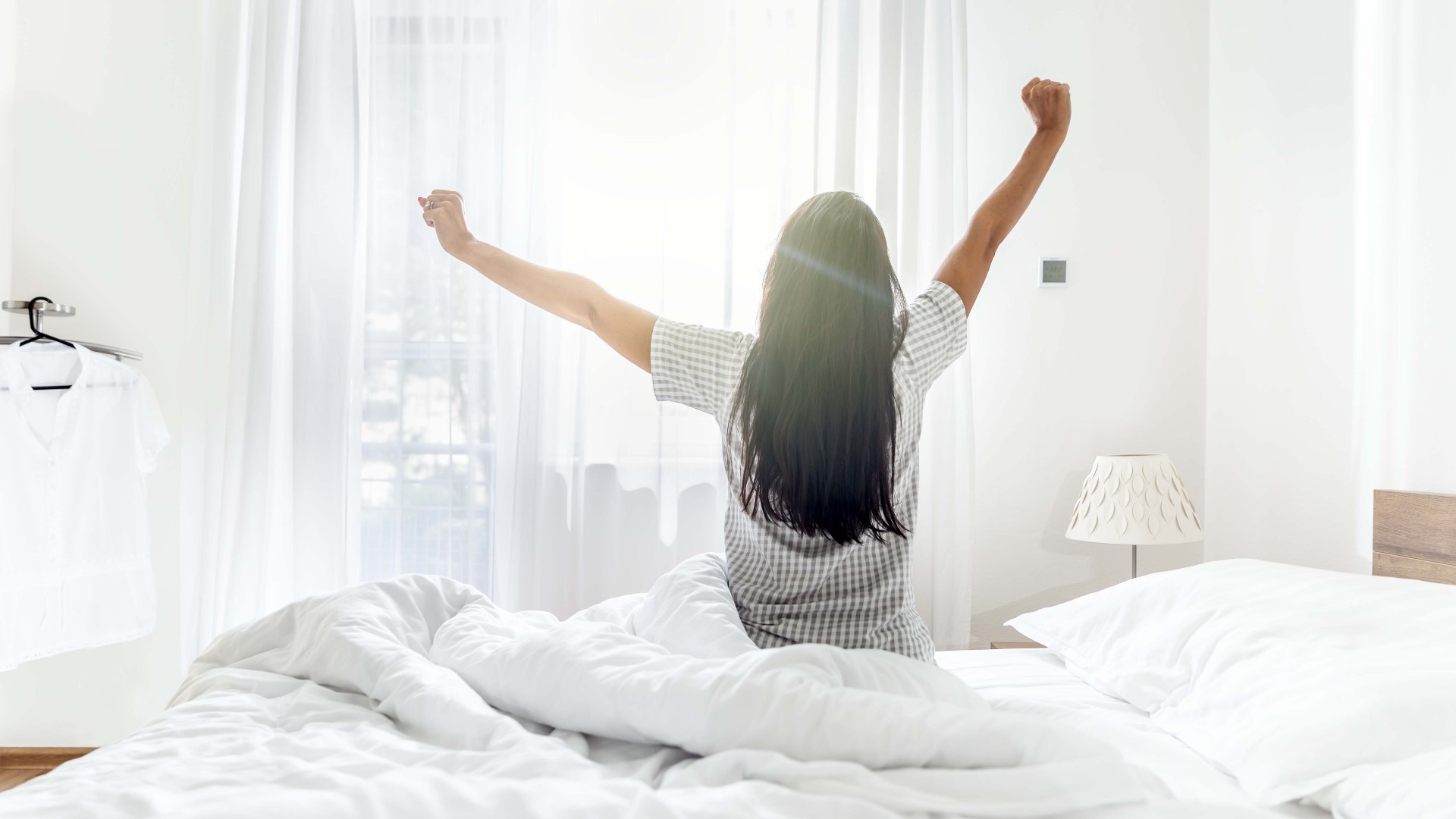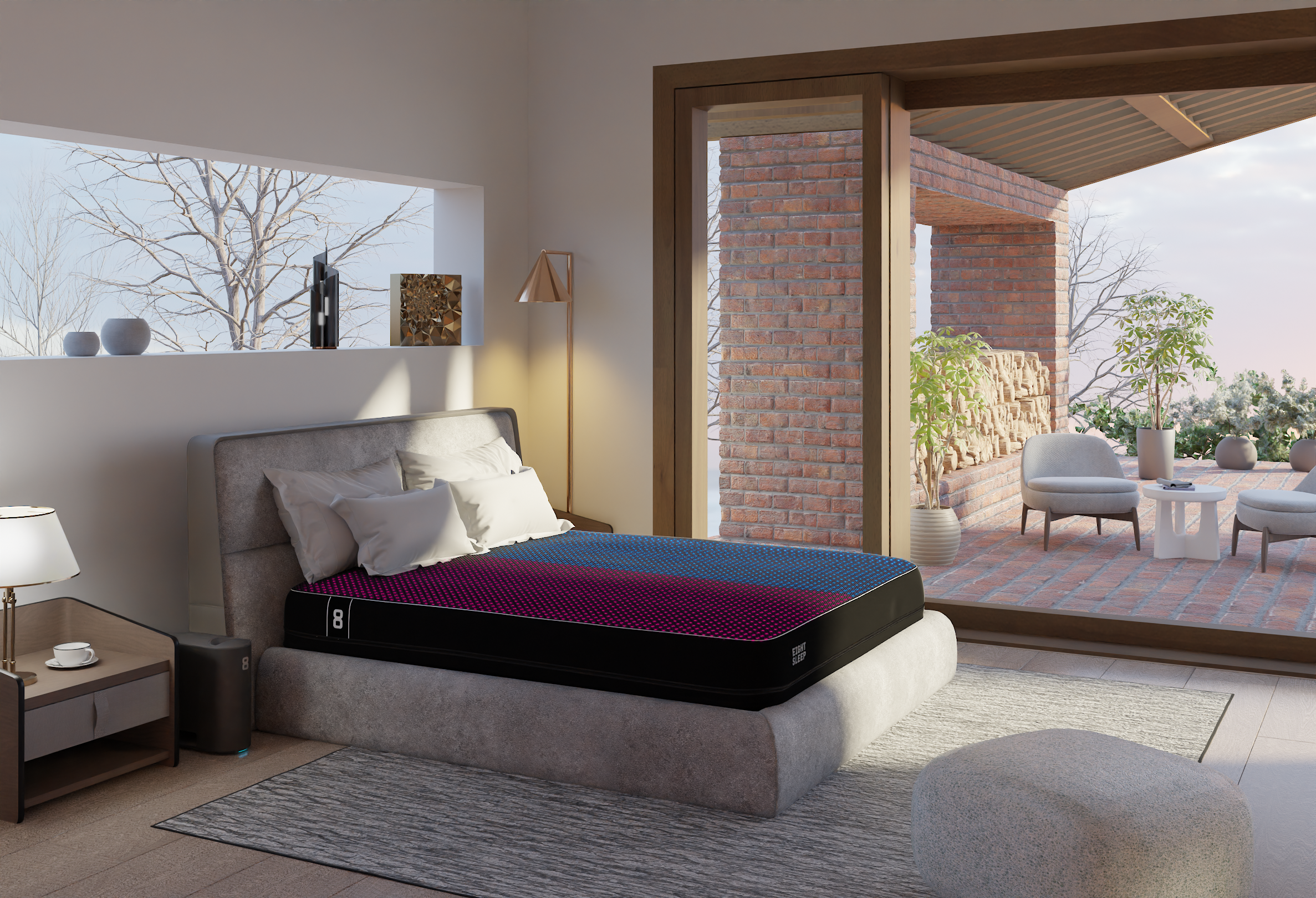How a good mattress can help improve your mental health
For World Mental Health Day, we explore how the right mattress can improve your mental health

This World Mental Health Day, we're taking a closer look at how our sleep and mental health are closely linked — and how sleeping on a decent mattress can help improve both. Not getting enough sleep negatively affects your mood and can lead to lower cognitive performance at work or school, which feeds into a cycle of anxiety and depression that can be hard to break.
Anxiety and depression can lead to insomnia, which will then accentuate the symptoms. When you're stuck in this cycle — and I speak from experience here — it can feel near impossible to break out of it.
Thankfully, there are steps you can take to improve your sleep. Keeping a regular sleep schedule, limiting screen use before bed, and avoiding caffeine are all tried-and-true methods. There's also a chance that your bed isn't optimized for your preferences. Upgrading your sleep setup with one of the best mattresses for your sleep needs is one surefire way to improve both your sleep and your mental health. Here's why.
How sleep affects mental health
While symptoms may vary wildly from person-to-person, not getting enough sleep negatively affects your mental health. The National Heart, Lung, and Blood Institute advises that those suffering from sleep deprivation may have trouble making decisions, solving problems, controlling your emotions and behavior, and coping with change. Poor sleep can also cause you to feel angry and impulsive, have mood swings, feel sad or depressed, or lack motivation.
In the run-up to World Mental Health Day, we asked a clinical psychologist if insomnia can cause depression. Dr. Brianna Gaynor told us that insomnia can be a symptom of depression, and while insomnia can spur on depression, it's rarely the sole cause.
What is a 'good' mattress?
Sleep technology has become a highly advanced and competitive industry, and there are now multitudes of different types of mattresses catering to the needs of all different types of sleepers. Whether you're a hot sleeper who requires a cooling mattress, or experiencing body aches that require joint support, there is a mattress out there that can help alleviate these issues for you.
What does a 'good' mattress look like? Firmness and comfort is subjective, and what makes a great mattress will be different to everyone. Finding the perfect mattress for you is a great first step to improving your sleep quality.
How the right mattress can improve your sleep quality
What we sleep on can dramatically impact the quality of our sleep. Let's take a look at some of the ways that mattresses can help us achieve deeper and longer sleep for improved physical and mental health.
Regulates your body temperature
The best cooling mattresses can regulate your body temperature, keeping you cool and comfortable through the night and minimizing night-time waking. Hot flashes, night sweats, and illnesses can affect people all year round, so if heat regulation is a consistent problem for you, then one of these breathable mattresses will be the answer. Our favorite is the GhostBed Luxe, which uses cooling fibers and gel memory foam to stay cool to the touch. If you need something cheaper, look into the Cocoon by Sealy Chill Hybrid Mattress.

Supports your spine
The right mattress for you will contain enough supportive layers to hold your spine in correct alignment, regardless of your body weight and sleep position. When your spine is cradled in alignment with the rest of your body, you avoid painful pressure buildup that can result in a disturbed night's sleep. If back pain is currently keeping you up at night, take a look at our best mattresses for back pain guide.
Sign up to get the BEST of Tom's Guide direct to your inbox.
Get instant access to breaking news, the hottest reviews, great deals and helpful tips.
Reduces allergies
Allergens like dust mites and pollen can have adverse effects on our sleep, so you may want to consider a mattress that will help keep these allergens at bay. Some mattresses have hypoallergenic properties - latex mattresses achieve this naturally, while other materials can be infused with antimicrobial technology. To find out more, read our guide to mattresses resistant to common allergens.
Supports your sleep position
The most common sleep position is side, but others prefer to sleep on their back, stomach, or a combination of the three. Sleeping on the wrong type of mattress for your sleep position can lead to your spine dipping out of alignment and induce a painful buildup of pressure. Side sleepers generally require more pressure relief across the shoulders, hips, and knees and get on better with a plusher mattress. Meanwhile, back and stomach sleepers require a firmer surface to keep their spine cradled in alignment.

Reduces nighttime awakenings
If you find a mattress that meets all of these requirements - regulates temperature, promotes healthy spinal alignment, and supports your sleep position - you'll likely find nighttime wakings are drastically reduced. Now, technology is stepping into help meet these needs with smart beds. The best smart mattresses and beds can sense your sleep position and temperature and adjust as you sleep, preventing nighttime wakings before they happen. Yes, they do come with a hefty price tag (Mark Zuckerburg and Elon Musk are big fans of Eight Sleep), but if you can afford one, you'll definitely feel the benefits.
Other ways to improve your sleep quality
A good mattress underpins quality sleep by supporting your body, regulating your temperature, and preventing disturbances during the night. Finding the best mattress for you is a great first step in finding better sleep, but there other ways to improve your sleep by modifying your behaviours. If you suspect that your mattress isn't the problem, we recommend trying the steps below.
Go to bed at the same time every day
Your circadian rhythm (your internal body clock) determines your sleep-wake cycle. When this gets thrown out of whack, you could be in for some sleepless nights. The best way to ensure you stay in your routine is go to bed and wake up at the same time each day. Tom's Guide's senior sleep editor and resident sleep coach Claire Davies says getting up at the same time each day is her 'number one golden sleep rule.' So if you can't always make it to bed at the same time, try and get still get up at your regular time. While a lie-in at the weekend might be tempting, only indulge if you can do so without sacrificing your sleep schedule.

Limit screens before bed
As a serial gamer, I sometimes forget this advice, but try not to use screens for at least an hour before you go to sleep. It can be very tempting to watch just one more episode of that bingeable Netflix show, but if you can take a book to bed instead, your sleep schedule will thank you. It's a well-known fact that the blue light emitted by phone and TV screens affects your ability to fall asleep, so if you can, try to leave your devices in the other room when at bedtime.
Avoid caffeine 8 hours before bed
Those on a busy schedule might find this the hardest rule to follow, but studies show that consuming caffeine as much as eight hours before bed can harm your sleep quality and make it harder to fall asleep. That means if your bed time is at 11pm, don't even think about that 3pm coffee.

Jack, a multimedia journalist, is the Sleep Deals Writer for Tom's Guide. Since attaining his journalism degree at the University of Gloucestershire, Jack has built up eight years of experience in writing and content creation. At Tom’s Guide, he is responsible for reporting on the latest deals and sales on mattresses, mattress toppers, beds, bedding, and sleep tech. Jack is fascinated by the link between sleep and mental health, productivity, and general quality-of-life. He’s especially interested in exploring how technology from brands like Sleep Number and Eight Sleep can improve sleep and general wellbeing. His other interests include live music and gaming, subjects about which he has penned thousands of words.
